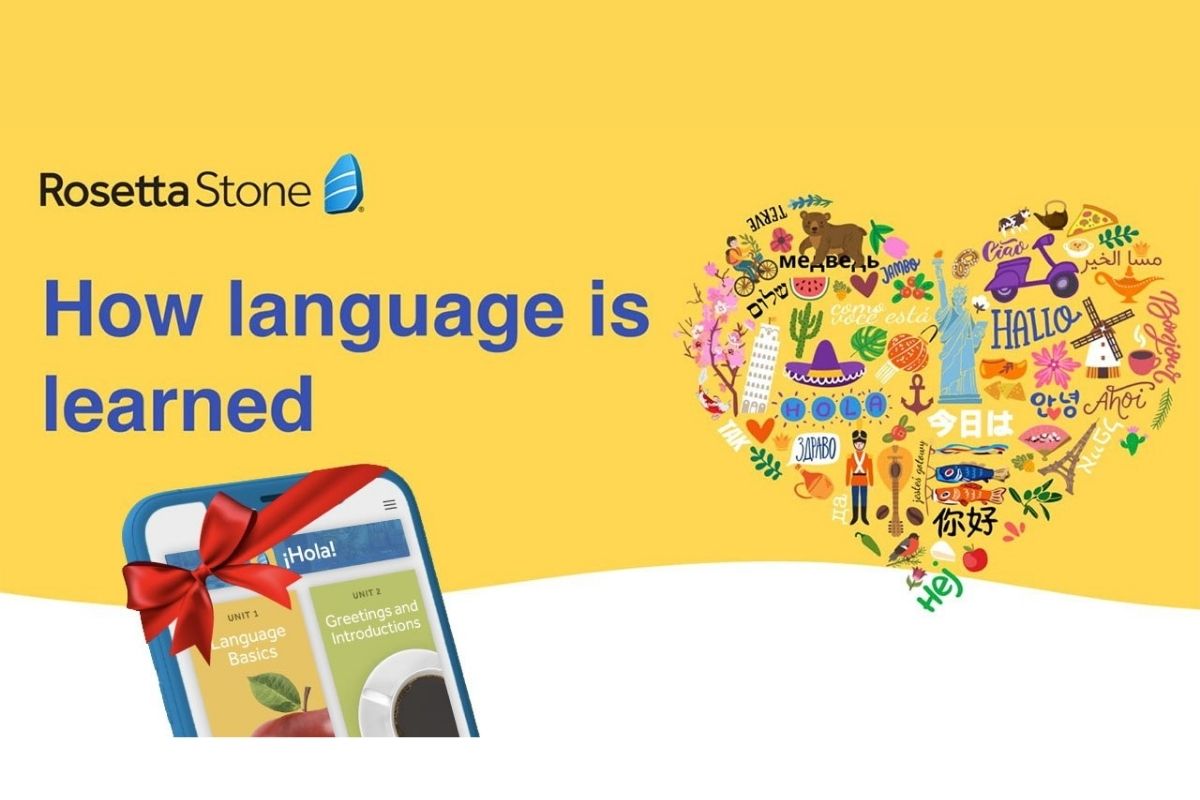Embarking on the journey of learning a new language opens the door to an entire culture—a rich tapestry of words, meanings, and social nuances that shape communities and individual identities. Mastering a language in a natural and logical way is crucial for effective communication. Since its inception in 1992, Rosetta Stone has been a pioneer in teaching languages, catering to individuals eager to explore new destinations, work abroad, or even relocate entirely.
In this review, we’ll evaluate whether Rosetta Stone remains a worthwhile investment for language learners in 2024, noting its utilization by companies such as Uber, Twitter, various universities, and even the U.S. Air Force.
What is Rosetta Stone?
With three decades of experience, Rosetta Stone promises to guide learners from the basics to confident fluency in any of the 25 languages it offers. The platform employs a blended learning approach, mirroring the natural language acquisition process of children. From the outset, learners are immersed in the target language, making connections between words and images without relying on translations. Speech recognition technology and feedback from native speakers are key components, ensuring learners refine their pronunciation effectively.
Who Should Use Rosetta Stone?
Despite its long-standing presence in the market, Rosetta Stone retains a traditional approach in 2024, standing alongside newer competitors like Duolingo, Babbel, and Lingomelo. One notable limitation is its lack of advanced AI tools that personalize learning paths based on individual proficiency levels. Instead, the platform offers a standardized curriculum for each skill level.
For those comfortable with this conventional method, which is rooted in patterns developed by expert linguists, Rosetta Stone can be an excellent choice for languages like English, Italian, French, and Spanish.
Lesson Duration and Structure
Rosetta Stone is particularly effective for learners who can commit to regular study—ideally five days a week for a month and a half. Dedicating just 10 to 30 minutes each day can lead to meaningful progress. The platform offers two lesson types: a comprehensive 30-minute class divided into reading, listening, and speaking sections, and a quicker 10-minute version for those with limited time, covering essential activities.
Key Features
Rosetta Stone is equipped with various features designed to enhance the language learning experience:
- Blended Learning: The platform combines interactive lessons with immersive experiences, promoting better retention of new vocabulary and concepts.
- Diverse Language Options: With a selection of languages that includes Arabic, Chinese, French, and Spanish, learners can choose based on their interests and needs.
- Reporting Tools: Users can access detailed reports on their progress, identifying strengths and areas for improvement.
- Learning Portal: A dedicated portal provides seamless access to materials and interactive activities.
- Supplementary Content: Beyond core lessons, the platform offers additional resources like Stories, Seek & Speak, and Phrasebook to further develop language skills.
- Progress Monitoring: Detailed tracking allows users to see their advancements over time, reinforcing motivation.
Plans and Pricing
Rosetta Stone offers various subscription plans, with a focus on individual options:
- 3-Month Plan: Study one language for $35.97, with upfront payment for three months at $11.99 per month.
- 12-Month Plan: Typically priced at $9.09 monthly, this plan is available for $7.99 per month if paid annually, totaling $95.88 upfront.
This option allows you to explore one language, which includes choices like Spanish, French, Italian, German, and more.
- Lifetime Subscription: For those wishing to learn multiple languages simultaneously using Rosetta Stone’s immersive method, the lifetime subscription is available for a one-time fee of $399. While this may seem steep, it offers a cost-effective alternative to traditional classes or other language services.
Is Rosetta Stone Worth It?
Rosetta Stone’s focus on contextual learning and daily practice, without relying on English translations, provides a structured foundation in speaking, writing, listening, and grammar. This approach resembles a traditional high school language course and is beneficial for building grammatical skills and vocabulary. However, its premium pricing raises questions, especially when numerous free or more affordable alternatives exist online.
For learners who appreciate a straightforward, repetitive method, Rosetta Stone may serve their needs well. Still, it’s advisable to consider more budget-friendly options and diversify resources to enrich the language learning experience.
Frequently Asked Questions
Will I achieve fluency using Rosetta Stone?
Achieving fluency is contingent on your commitment and the time you invest beyond the daily lessons offered by Rosetta Stone. The platform includes a speech recognition feature, TruAccent, which provides feedback on pronunciation, enhancing your ability to communicate effectively. While it can significantly boost vocabulary and grammar, fluency ultimately depends on supplementary practice and engagement.
What is Rosetta Stone’s teaching methodology?
Rosetta Stone utilizes an immersion-based approach, rooted in established linguistic theories. By teaching all language skills—reading, writing, listening, and speaking—it emphasizes the importance of production in language learning, which research shows is critical for comprehension. Unlike other platforms that may focus on conversational phrases, Rosetta Stone stresses grammatical accuracy and structured learning.
Alternatives to Consider
While Rosetta Stone has established itself as a reputable name in language education, its approach may feel monotonous and disconnected from practical use. Platforms like LingoMelo offer a dynamic alternative, immersing learners in real-world scenarios from the outset. With access to a variety of languages and engaging instructors, LingoMelo provides a fresh, effective method for language acquisition.
In summary, whether you choose Rosetta Stone or an alternative will depend on your personal learning preferences, goals, and budget. Exploring multiple resources can yield a more well-rounded language learning journey.




